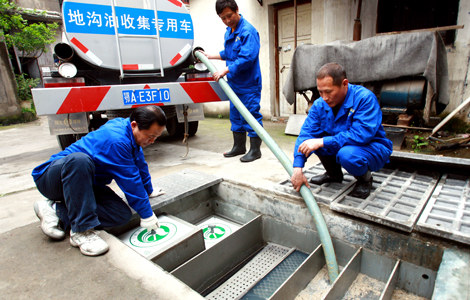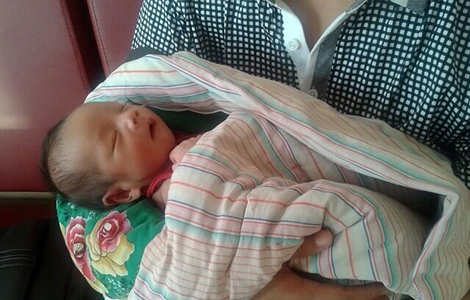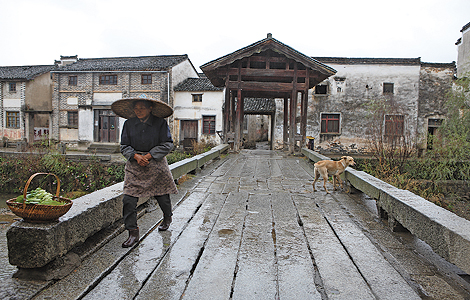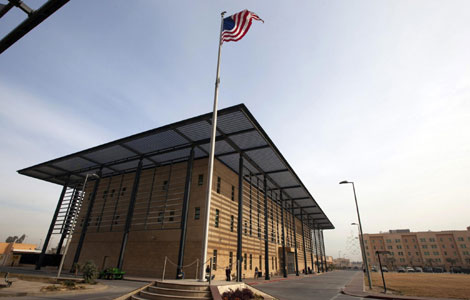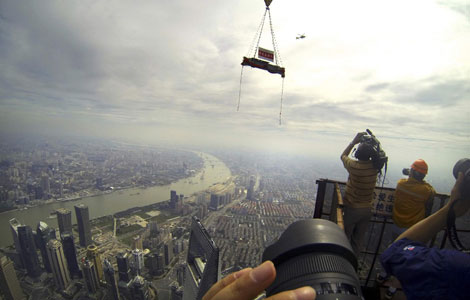
Iran's new president, Hasan Rowhani, took the oath of office before Parliament on Sunday, starting his four-year term as Iran faces grave challenges over its sluggish economy and international isolation due to the country's controversial nuclear program.
The 64-year-old moderate cleric, who has signaled a willingness for more engagement with the world, is expected to take a more constructive approach in improving ties with major powers and the long-running negotiations over its nuclear program.
Observers said Iran's relations with Western powers will improve as Rowhani is likely to adopt more flexible policies to resolve tensions, but such relations still face uncertainty, given that Teheran's nuclear stance cannot fundamentally change.
Rowhani officially took office on Sunday after receiving a formal endorsement from supreme leader Ayatollah Ali Khamenei at a ceremony in a Teheran mosque.
During the ceremony, Rowhani promised to work to lift "the oppressive sanctions" imposed on Iran, "save Iran's economy" and to engage more constructively with the international community.
His first staff appointment - the nomination of Mohammad Nahavandian, who holds a doctorate in economics from George Washington University in the United States, as chief of staff - was seen as a statement of Rowhani's priorities. Nahavandian had been president of the Iran Chamber of Commerce, Industries and Mines.
Khamenei heaped praise on Rowhani, saying his election has delivered a "clear message" to the world.
He Wenping, an expert at the Institute of West Asian and African Studies at the Chinese Academy of Social Sciences, said Rowhani, who holds a doctorate in law from Glasgow Caledonian University in Scotland and is a former chief negotiator in the nuclear talks, is well informed about how to interact with Western powers.
His "engagement" statements have gained a positive response from the West, but more flexible measures are needed from Rowhani to achieve a breakthrough in relations and an end to Western sanctions that have dealt a heavy blow to Iran's economy, He added.
After his June election victory, Rowhani vowed to bolster "historical ties" with Russia and restore diplomatic ties with the United States, which severed relations in 1980. But he also pledged "no surrender" to Western demands regarding stalled talks on Iran's nuclear drive.
Iran has held repeated rounds of talks with the so-called P5+1 group, which comprises China, Britain, France, Russia, the US and Germany, but there has been no clear progress toward ending a decade-long dispute.
Khamenei has so far blocked direct talks with the US over the nuclear issue, saying Washington is "not trustworthy" as a negotiating partner. The EU and the US have slapped sanctions on Iran over its refusal to suspend uranium enrichment. Western powers and Israel suspect Iran is developing nuclear weapons, but Teheran insists its activities are only peaceful.
Over the past two years, the sanctions have sent inflation in Iran soaring to more than 30 percent while the Iranian rial has lost nearly 70 percent of its value against the US dollar and created double-digit unemployment.
Rowhani said the Iranians expect "stability in all fields, and the removal of all concerns and bottlenecks that Iran faces", warning that "satisfying the demands of the people ... will not happen at once".
Hua Liming, former Chinese ambassador to Iran, said the future of Iran-West relations depend on how the two sides interact with each other.
"Despite being more flexible, Rowhani is unlikely to fundamentally change the country's nuclear stance, while if the West imposes increasing sanctions to it, the opportunities for dialogue will be more elusive," said Hua, referring to a sanction bill targeting Iran that the US House of Representatives passed last week.
AFP contributed to this story.
Contact the writer at zhaoshengnan@chinadaily.com.cn


